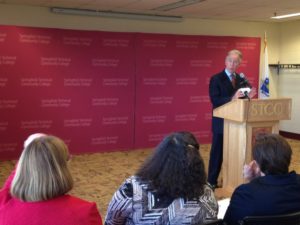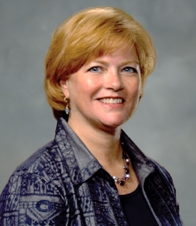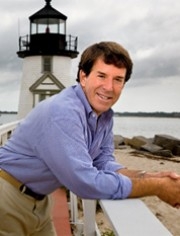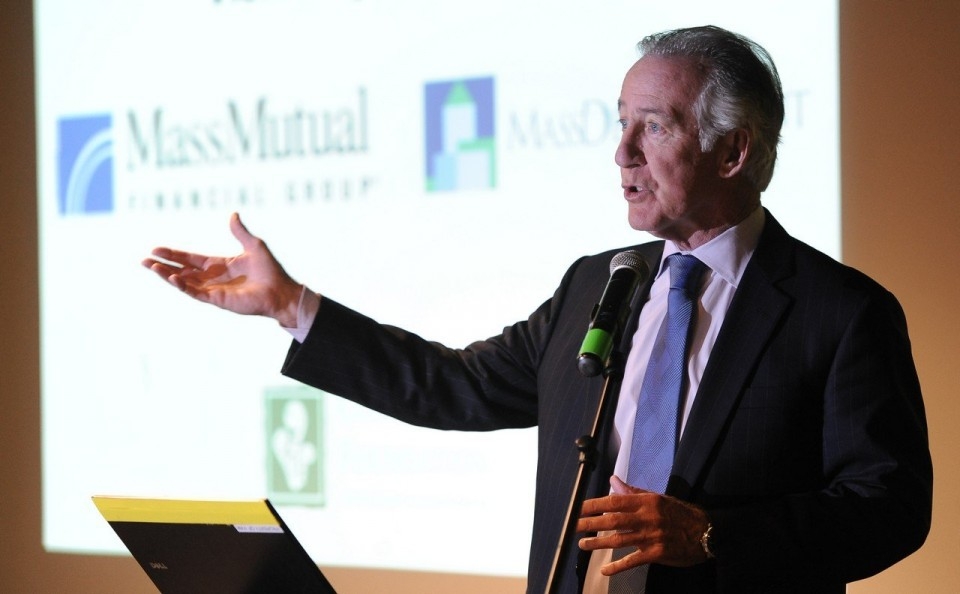This election, just four of the nine House members of Massachusetts’ all-Democratic congressional delegation face Republican opponents. Worcester Congressman Jim McGovern is running completely unopposed, while Springfield Representative Richie Neal faces an Independent and a Libertarian challenger.
Yesterday, we reported on the reasons why the Republican Party is skipping these races. One of the big factors is money. Jim McGovern has more than $450,000 in his campaign account. Richie Neal has over $3 million.

Recently, I caught up with Congressman Neal when he announced a federal grant for Springfield Technical Community College. He says raising campaign money is a reality for members of Congress, especially after Citizens United, which could leave him more vulnerable if he’s ever challenged by a well-funded opponent.
“Fundraising has really been transformative, and not to miss the point, it is a year-round endeavor,” Neal said.
He’s not kidding. Neal has received over $1.6 million since January of 2015. So if he has no active campaign, where does that money go?
Some of it goes to running a fundraising operation. According to Neal’s federal campaign finance filings, that includes office supplies, consultant fees, travel reimbursements and over $8,000 spent on flowers. Then there’s another big item.
“It’s kind of expected that they will turn over a few hundred thousand dollars to the party committees,” said Robert Boatright, a political science professor at Clark University. He said members of Congress can give unlimited amounts of money to their party’s campaign committee.
“That has really been the main vehicle by which the party campaign committees in the House and the Senate raise money,” Boatright said. “The Democrats, in particular, have been very organized about this.”
The numbers for Congressmen Neal and McGovern prove that. Neal has sent $300,000 to the Democratic Congressional Campaign Committee this election cycle. McGovern has given $200,000. According to Congressman Neal, the committee serves an important purpose: recruit new candidates and protect Democratic incumbents facing a serious challenge.
“It’s sort of like the Colgate Invisible Shield,” said Neal.
Just like brushing your teeth, Neal said, fundraising must be kept up regularly.
“You have to, on a year-round basis, provide the infrastructure to the Democratic Congressional Campaign Committee to make sure that they have the resources to recruit and elect Democratic candidates,” Neal said.
I asked whether there’s a certain dollar amount the party expects from him.
“I think it’s very clear that the Democratic leader expects the Democratic family to do their share,” Neal answered.
So that’s why a safe incumbent like Neal does so much fundraising, but who is giving the money? Most of Neal’s funding comes from political action committees representing different interest groups, corporations and unions. And some comes from individual donors like Marilyn Yager.

“[Neal has] actually been a friend for a long time, and I do have other folks in Congress who began as friends before I did any work with them on the advocacy side,” Yager said.
Yager is a D.C attorney who lobbies for health care companies and hospital groups, including the Massachusetts Hospital Association. Yager told me she met Neal when he was a freshman congressman in the 1980s. In June, she donated $2,500 to Neal’s campaign, and said she sometimes advises him on policy.
Yager insisted she doesn’t expect her gift to sway Congressman Neal on any particular issue. Same goes for Bruce Percelay, a Boston-based real estate developer. He gave Neal $1,000 in June, and said he likes his record on business.

“There was an old line that Democrats love employees, they just hate employers,” Percelay said. “He is not one of those people. He gets it.”
Percelay also said he’d like to see a lower corporate tax rate. “To punish companies for their success is counterproductive,” he said.
Meanwhile, Congressman Neal told me one of his top priorities for the next term is tax reform.
“President Obama has said we need to address a lower corporate rate,” Neal said, “and at the same time, acknowledge that America, we have five percent of the world’s population, and on an international basis, we need in this atmosphere of globalization to make sure we’re competitive.”
If he’s re-elected, Neal will be in a good position to work on that. He’ll start his 25th year on the House Ways and Means Committee, where he also serves on the subcommittee on tax policy.
